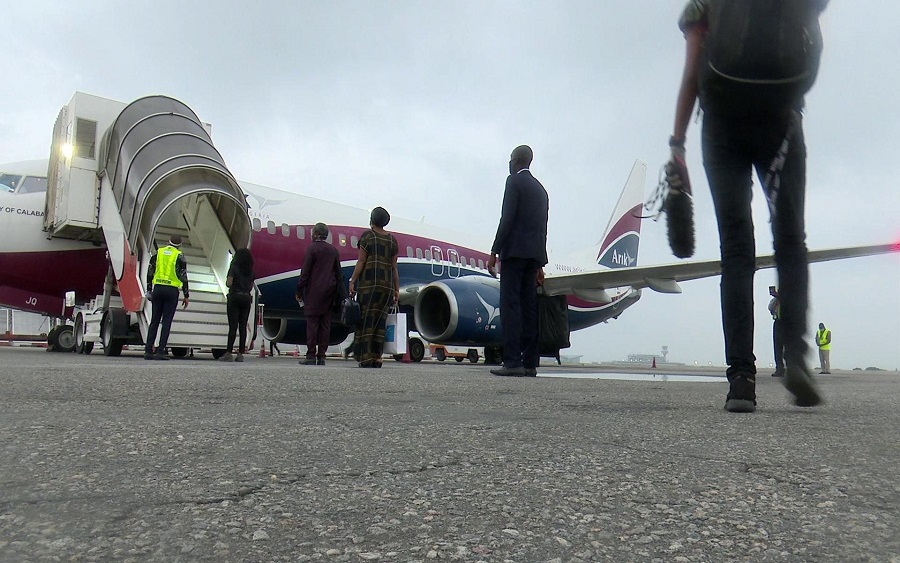The Nigeria South-Africa Chamber of Commerce (NSACC) and other professionals in the country have mentioned that foreign exchange scarcity, rising inflation, and inadequate infrastructure as some of the factors militating against growth in the Nigerian aviation industry.
The professionals called on the Federal Government to tackle the challenges headlong by introducing stimulus packages to support airlines and other organizations in the sector to wriggle out of the effect of the Covid-19 pandemic.
The professionals stated this in Lagos during the October Breakfast Meeting, organized by NSACC and sponsored by Phillips Consulting to celebrate its 30th anniversary.
In his presentation, the Chairman, of NSACC, Mr. Osayaba Giwa-Osagie, said that the current unpleasant situations in the sector were slowing down its growth.
Give Stimulus: He appealed to the government to encourage the operators through stimulus packages to tackle the aforementioned challenges and advised stakeholders in the sector to consistently engage the government to seek a way out of the gridlock. He said:
- “The current economic situation, foreign exchange scarcity, rising inflation, and inadequate infrastructure are factors that are plaguing the sector. To chart a new direction for the sector, all stakeholders have a role to play.
- “Also, stakeholders should constantly engage the government on ways to reposition the sector to be profitable and competitive. Air operators should adopt creative initiatives to help manage cost and build efficiencies.”
Aviation sector is important: Giwa-Osagie added that the aviation industry was a veritable tool for income generation and economic development of the country, declaring that its importance could not be over-emphasized.
- He quoted the reports of the National Bureau of Statistics (NBS), which stated that the aviation industry in Nigeria contributed at least N117.3 billion to the country’s economy within the first half of 2022., while the sector also raised 84.7 million and 32.6 billion in the first and second quarters,” respectively to the Nigeria Gross Domestic Product (GDP).
- “The Nigerian aviation industry has grown in size, capital, investment, safety, and quality management system. The sector is fundamental in facilitating trade, investment, and tourism,” he added.
Creativity in accessing capital: Also speaking, Mr. George Uriesi, the Chief Operating Officer (COO) of Ibom Air, advised the domestic airline operators to be creative in accessing capital.
- Uriesi, who was also the Guest Speaker at the occasion, emphasized that the operators needed a level playing field to thrive. Speaking on the topic: ‘Aviation in Nigeria: What next?, Uriesi said that there was a need for players in the industry to embrace good corporate governance in their day-to-day operations.
Gaining recovery: The Head of Research and Intelligence at Phillips Consulting Limited, Samuel Bamidele, in his remarks said Nigeria’s aviation industry was growing and recovering faster from the pandemic than global projection.
- Bamidele pointed out that while there are several pressure points or challenges facing operators in the industry, Philips Consulting expected the industry to continue on a positive trajectory.
- “One of the highlights of the Phillips Consulting aviation survey report is the low capacity in the industry, which we infer from challenges passengers face with securing urgent tickets and increased costs for late bookings.
- “In addition, we found that 16.24% of survey respondents do not prefer any airline, indicating that existing competition and potential new entrants are strong challengers for market share,” Bamidele said.
























